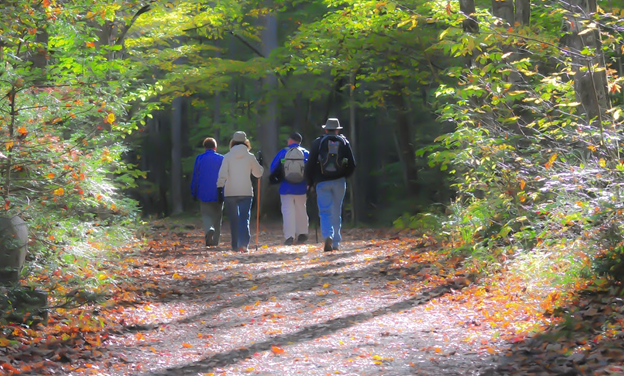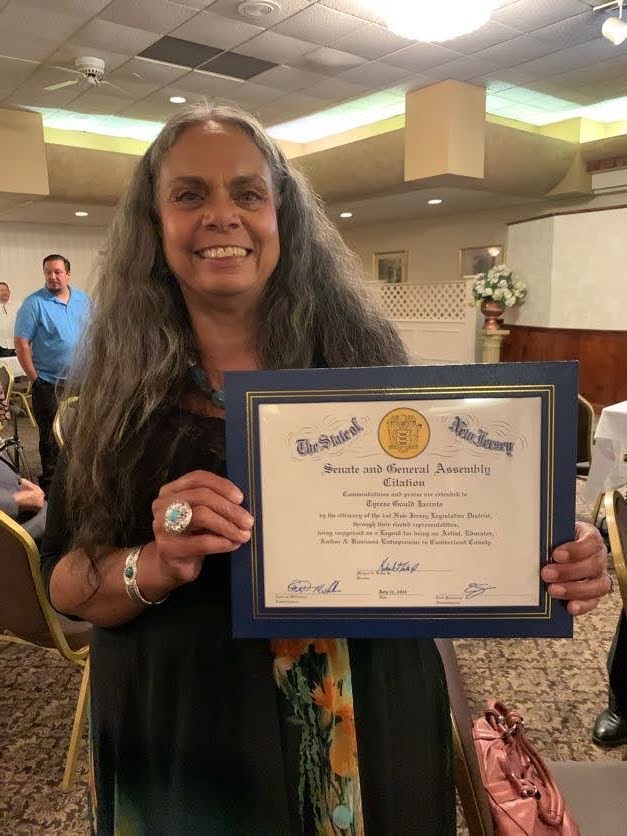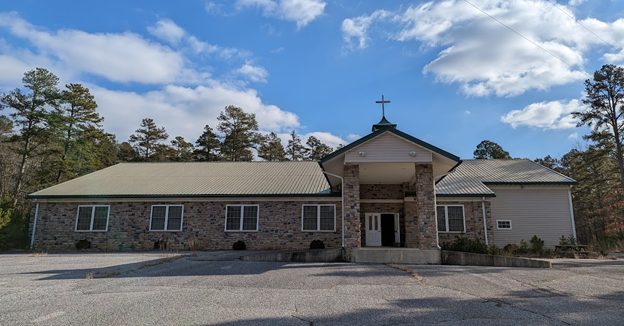

Photo of Cohanzick Nature Reserve. Photo courtesy of Tyrese Gould Jacinto
This story was produced in collaboration with CivicStory and the NJ Sustainability Reporting project.
BRIDGETON — You could hear the excitement in Tyrese Gould Jacinto’s voice when she talks about the future Cohanzick Nature Reserve at Burden Hill in Salem County.
In a time when concrete and asphalt continue to replace trees and wetlands, Jacinto and the Native American Advancement Corporation (NAAC) are looking to create the preserve — some of which was once owned by Jacinto’s ancestors.
The NAAC is a charitable and educational agency that provides support services such as job training, job creation, and teaching financial literacy while encouraging home ownership, promoting energy efficiency and inspiring entrepreneurship.

Tyrese Gould Jacinto at Cumberland County Legends Awards ceremony in 2022. Photo courtesy of Tyrese Gould Jacinto
Jacinto said the preserve is part of NAAC’s mission to protect the environment by utilizing a Native American approach to address threats to natural resources. The NAAC is purchasing the land for $875,000, for which they have secured 90% of the funding. Jacinto told Front Runner New Jersey.com she can see the realization of the preserve in sight.
“If you look at the map of Quinton Township, where the preserve will be, this land was owned by my great-grandparents,” Jacinto said. “It is a miracle and a blessing to be able to get this. If you look at an old map, you will see my great-grandfather’s name, Anthony Pierre, on it.
“So to buy back a piece of what was once owned by our ancestors truly brings this back full circle.”
Her father Mark Gould, the former chief with the Nanticoke Lenni Lenape Nation, never moved far away. At 81, he lives right down the road from the preserve, which Gould said with a laugh “will shorten his commute time.”
The land acquisition will prevent future development and immediately provide public access for hiking, bird watching, naturalist activities, and recreation in the pristine woodlands, as well secure an existing structure that will serve as administration and classroom facilities.

Image of building that will be used by NAAC for programs on the reserve. Photo courtesy of Tyrese Gould Jacinto
Jacinto said that NAAC plans to offer indigenous skill-building programs, building on its existing partnerships with state agencies, universities, and conservation organizations. The workshops will include things like hunter safety, tracking/wildlife identification, wilderness first aid, and living off the land.
She said the training center will teach people how to use their resources responsibly, such as water usage, growing their own food and taking care of the nature around them. She said it has become too easy for people to forget about the little things, like not being conscious about how long you leave your water running, that can make a big difference.
“We want to start with the children and try to break the cycle we’re in,” Jacinto said. “In truth, we’re all carpenters and farmers. It’s very rewarding what we do, and we want to break the stigma of being a carpenter and farmer and working with your hands.
“It’s really important for us to teach this new generation before we move to another generation of people that waste.”

Photo of Cohanzick Nature Reserve. Photo courtesy of Tyrese Gould Jacinto
Information from the NAAC said their programs will directly serve the public by increasing conservation awareness and allowing access to learning local Native American traditions.
Jacinto said the long-term goal will be to establish a public nature center that will host a series of conservation programs for all ages, such as Native plant education, naturalist school programs for pre-K-12, and a wilderness survival school, to name a few.
The NAAC has established relationships with the New Jersey Department of Environmental Protection, the New Jersey Department of Community Affairs, the New Jersey Department of Education, and conservation groups like the New Jersey Conservation Foundation.
Jacinto said if push came to shove, the NAAC could pay the remaining 10% of what they need for the land, but it would entirely deplete their resources for their current ongoing programs. So NAAC is currently involved in fundraising efforts to raise the rest of the money to establish the preserve without taking money that is already budgeted for other purposes.
That included its weatherization assistance program, energy assistance, lead remediation and heat improvement.
The New Jersey Conservation Foundation is partnering with NAAC to assist with the transaction of the land. The New Jersey chapter of The Nature Conservancy is also a committed funding partner.
“This fulfills a need,” Jacinto said. “This expansion is our way to teach America how to conserve and save energy and the environment. We can secure this for the upcoming generations. This is just our next step.”
This story was produced in collaboration with CivicStory and the NJ Sustainability Reporting project.
